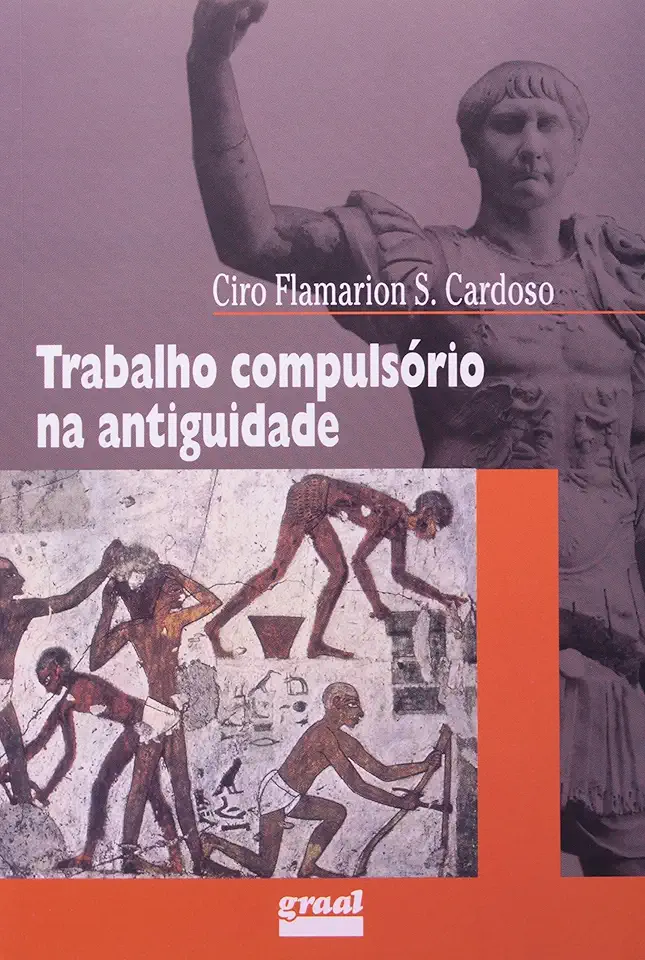
Compulsory Labor in Antiquity - Ciro Flamarion Cardoso
Compulsory Labor in Antiquity: A Comprehensive Exploration of Forced Labor in the Ancient World
Introduction: Unveiling the Hidden History of Labor Exploitation
In the annals of human history, labor has played a pivotal role in shaping societies and economies. Yet, the darker side of labor, characterized by coercion and exploitation, often remains shrouded in obscurity. "Compulsory Labor in Antiquity" by Ciro Flamarion Cardoso embarks on a groundbreaking journey to illuminate the widespread prevalence of forced labor in the ancient world, shedding light on the lives of countless individuals whose labor was unjustly harnessed for the benefit of the privileged few.
Delving into the Depths of Ancient Labor Practices
Cardoso's meticulously researched work delves into the depths of ancient labor practices, meticulously examining the various forms of compulsory labor that existed in different societies across the globe. From the oppressive labor systems of ancient Egypt and Mesopotamia to the brutal conditions endured by slaves in Greece and Rome, the book unveils the harsh realities faced by those who were denied the freedom to choose their own labor.
Uncovering the Economic Foundations of Coerced Labor
Beyond the mere description of forced labor, Cardoso delves into the economic foundations that sustained these oppressive systems. He argues that the exploitation of labor was not merely a byproduct of social inequality but rather an integral component of ancient economies. By analyzing the economic incentives and power structures that perpetuated forced labor, Cardoso provides a deeper understanding of the mechanisms that drove this exploitative practice.
Exploring the Social and Cultural Implications of Coerced Labor
The impact of compulsory labor extended far beyond the economic realm, profoundly shaping the social and cultural fabric of ancient societies. Cardoso examines how forced labor contributed to the formation of social hierarchies, the emergence of class divisions, and the dehumanization of certain population groups. He also explores the cultural justifications and ideologies that were employed to legitimize and perpetuate these oppressive systems.
Resisting Oppression: The Voices of the Oppressed
Despite the overwhelming power dynamics that favored the ruling elites, Cardoso highlights instances of resistance and rebellion against forced labor. He brings to light the voices of the oppressed, showcasing their resilience and determination to challenge their unjust circumstances. These accounts provide a glimpse into the human spirit's indomitable capacity for resistance, even in the face of extreme adversity.
Conclusion: A Call for Recognition and Reckoning
"Compulsory Labor in Antiquity" concludes with a powerful call for recognition and reckoning. Cardoso emphasizes the importance of acknowledging the historical legacy of forced labor and its enduring impact on contemporary societies. By confronting this uncomfortable past, we can strive towards a more just and equitable future, where the exploitation of labor is relegated to the annals of history.
Why You Should Read This Book:
- Gain a comprehensive understanding of the prevalence and forms of forced labor in the ancient world.
- Explore the economic foundations that sustained these oppressive systems and their impact on ancient economies.
- Delve into the social and cultural implications of compulsory labor, including the formation of social hierarchies and the dehumanization of certain population groups.
- Discover instances of resistance and rebellion against forced labor, showcasing the resilience of the oppressed.
- Reflect on the historical legacy of forced labor and its relevance to contemporary societies, inspiring a call for recognition and reckoning.
"Compulsory Labor in Antiquity" is a must-read for anyone seeking a deeper understanding of ancient history, labor economics, and social justice. Cardoso's groundbreaking work sheds light on a crucial aspect of human history that has been too often overlooked, offering a powerful reminder of the struggles and sacrifices of those whose labor was unjustly exploited.
Enjoyed the summary? Discover all the details and take your reading to the next level — [click here to view the book on Amazon!]